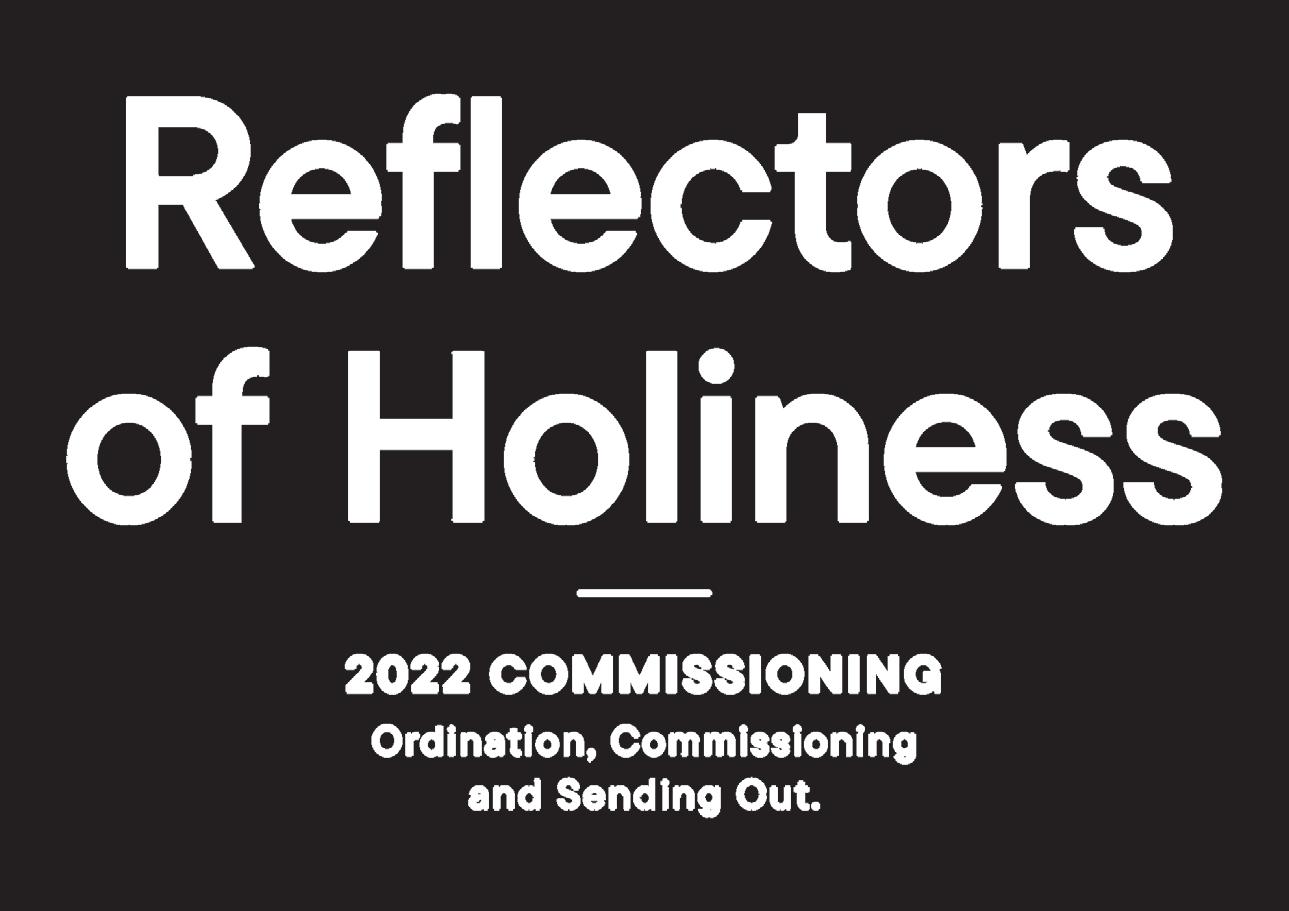FAITH TALK Playing the game
MY STORY
Making new connections

Making new connections
Running is more than posting a time

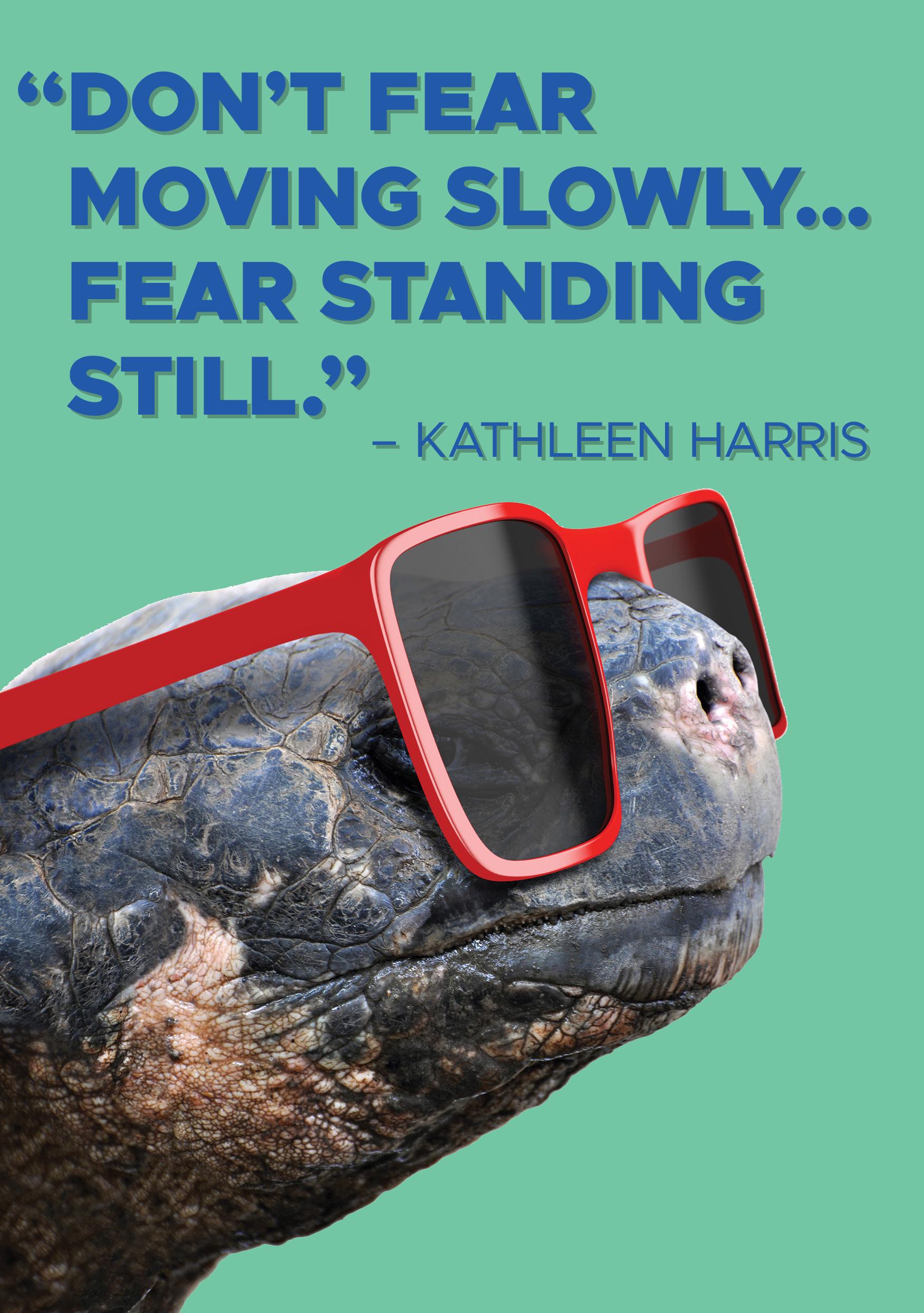
The Salvation Army, an international movement, is an evangelical part of the universal Christian Church.
Vision Statement
Wherever there is hardship or injustice, Salvos will live, love and fight alongside others to transform Australia one life at a time with the love of Jesus.
Mission Statement
The Salvation Army is a Christian movement dedicated to sharing the love of Jesus by:
• Caring for people
• Creating faith pathways

• Building healthy communities
• Working for justice
The Salvation Army Australia acknowledges the Traditional Owners of the land on which we meet and work and pay our respect to Elders, past, present, and future. We value and include people of all cultures, languages, abilities, sexual orientations, gender identities, gender expressions, and intersex status. We are committed to providing programs that are fully inclusive. We are committed to the safety and well-being of people of all ages, particularly children.
Founders William and Catherine Booth
General Brian Peddle
Territorial Leaders
Commissioners Janine and Robert Donaldson
Secretary for Communications and Editor-In-Chief
Colonel Rodney Walters
Publications Manager Cheryl Tinker
Assistant Editor Faye Michelson
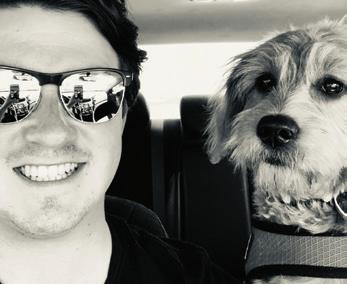
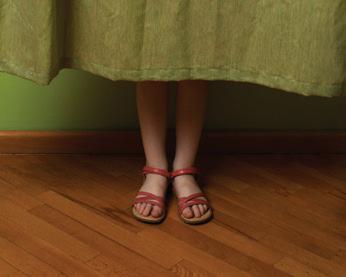
Graphic Designer Ryan Harrison
Publications phone (03) 8878 4500
Enquiry email salvosmagazine@salvationarmy.org.au
All other Salvation Army enquiries 13 72 58
Press date 31 October 2022
Printed and published for The Salvation Army by
Commissioner Robert Donaldson at Focus Print Group, South Granville, NSW
salvosmagazine.org.au
Michelle Watts loves to run. As you’ll read in this week’s feature, she loves to go on long, long runs. And by this we mean ultramarathon distances of 100km.
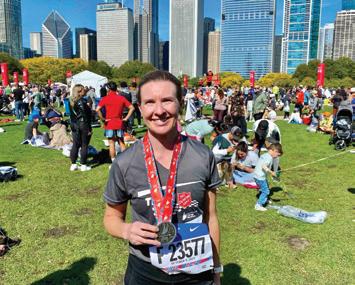
She’s also run in countries around the world. As the senior producer of The Salvation Army Australia Territory Salvo Studios, Michelle films the Salvos’ work in many countries and always finds time to put on her trainers.
Michelle describes the joy running brings her, the disappointment and frustration of an injury and the exhilaration of regaining her fitness to achieve an amazing goal.
There’s no escaping the ups and downs of life, no matter how fit we are or how carefully we plan our days. As our Faith Talk reminds us, life happens whether we’re ready or not. However, the Bible tell us the good news that, “God is our shelter and strength, always ready to help in times of trouble” (Psalm chapter 46, verse 1 Good News Translation).
Faye Michelson Assistant EditorMy Story [12] A roundabout journey to Jesus
[10] Ready or not, here life comes
Feature [4] Runner’s high
The Salvation Army is about giving hope where it’s needed most.
Marathon running is a challenge and a joy for Michelle
Words Dean SimpsonMichelle Watts is happiest when she’s running. And we’re not talking about a jog around the block. Michelle is a marathon runner – a serious marathon runner – and it’s not unusual for her to run 100km in a day!
A senior producer for The Salvation Army Australia Territory Salvo Studios, Michelle ticked off a major goal recently by running the 42km Chicago Marathon. She was part of a 15-member team representing and raising funds for The Salvation Army USA Central Territory Metropolitan Division.
While she was pleased with her time of three hours and 50 minutes, competing in an event like this means more than simply posting a time.
“Running for me is a great way to connect with people,” Michelle says. “I have made lifelong friends through differ ent running communities. It’s great to connect with people from different social circles and often gives me opportunities to talk about God and his great creation.
“The Chicago Marathon was an incredible event and an amazing way to see the city. The weather was perfect, and it was a lot of fun. This was the first of the ‘majors’ I’ve done in terms of marathon running. There are six majors – Chicago, London, New York, Tokyo, Berlin and Boston.”
Michelle, her husband Stuart and their two young sons live on Sydney’s Northern Beaches. She says the whole
family is involved in running and sports, which gives them a healthy lifestyle.
“Stuart and I are the event directors at Curl Curl parkrun ... we love to help build a positive and inclusive community around where we live,” she says.
As part of her role with Salvo Studios, Michelle regularly travels the world to showcase The Salvation Army’s International Development programs.
She has been with the Salvos for nine years and has filmed the Army’s work in Africa, South America, South East Asia, Papua New Guinea and Europe. And, not surprisingly, she always manages to find time for a run in many of these places –even a ‘glacial’ run in freezing Greenland!
“Another reason I love running is for my mental as well as physical health,” she says.
“It makes me happy, focused on the important things and generally more posi tive about life. Being outdoors in God’s great creation always makes me happy. “But it can also be tough. Last year, I had
Running for me is a great way to connect with people.
a bad running injury, a stress response in my femur. I found it really challenging not being able to run. So, to be able to slowly regain my fitness, I set a goal of running in the Chicago Marathon and actually doing it was super-amazing.”
The Chicago Marathon was Michelle’s sixth road marathon but definitely not the last.
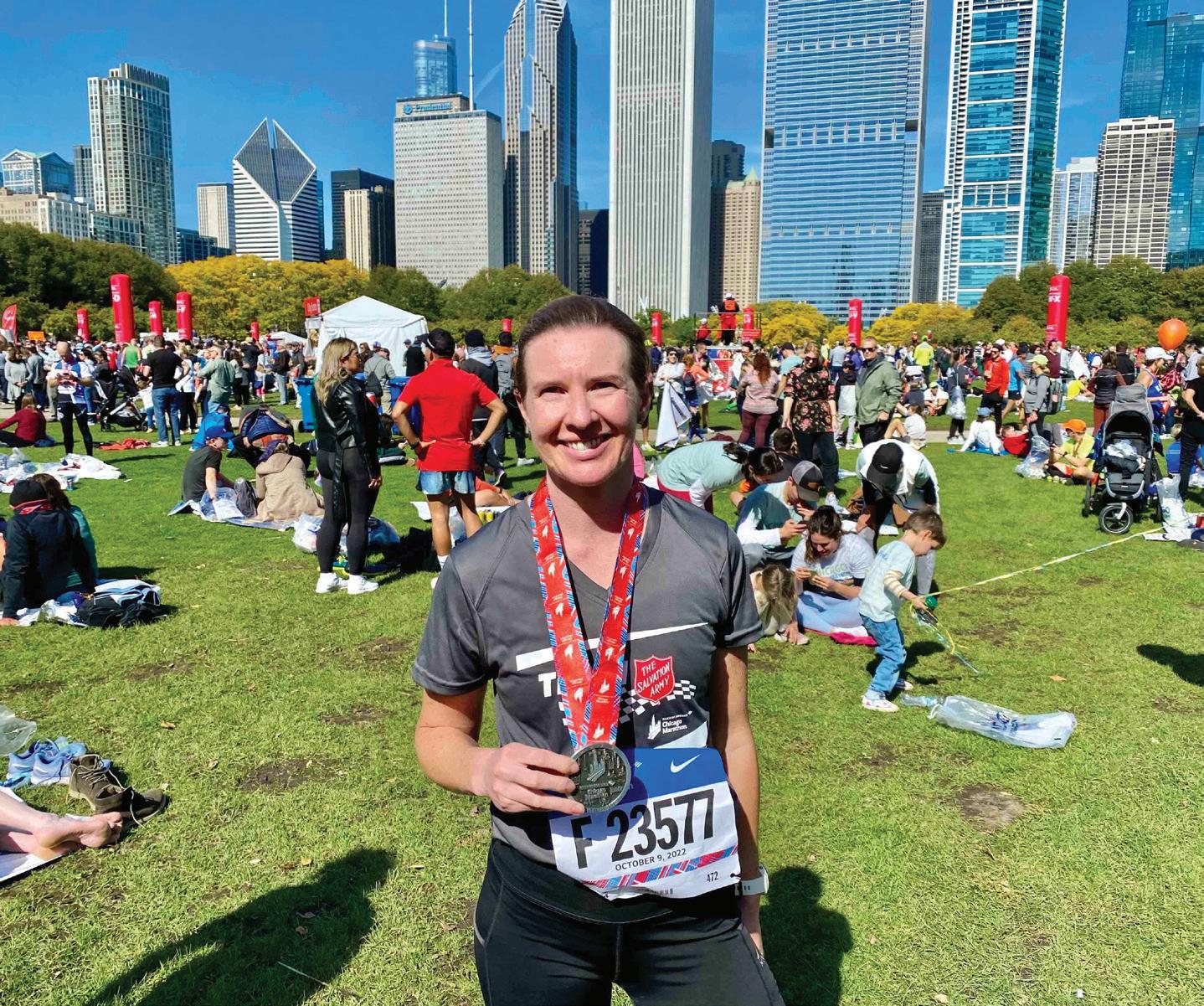
“I have done the Blackmores Sydney marathon twice – once dressed as a pirate for a Guinness world record attempt – and the Canberra, Gold Coast and Barcelona marathons,” she says. “I have also done four trail ultra-marathons of up to 100km. I can be pretty much running all day!”
Michelle is not joking. On 20 September 2020, she proceeded to run from Sydney to Wollongong in 13 hours and 20 minutes. She has also completed trail ultra-marathons in the Blue Mountains and on Sydney’s North Shore, all 100km long.
“In the end, I’m so thankful to God for the ability to run,” she says, “and for the relationships I’ve made and the incredi ble places it has taken me.”
Scan here for more on finding meaning.
Representatives from The Salvation Army recently joined around 300 dele gates in Canberra, plus other virtual attendees, at the inaugural Rethink Addiction National Convention.
The conference and the Rethink Addiction campaign that it supports aims not only to elevate the conversation about addiction as a national policy priority issue, but stresses that “It’s time to change the conversation”.
Conference participants were welcomed by Rethink Addiction spokesperson and leading researcher in addiction studies, Professor Dan Lubman.
Addiction is one of the most stigmatised of all health conditions.
including withholding information for fear of receiving substandard treatment and engaging in further self-harm.
“Addiction is one of the most stigma tised of all health conditions,” Professor Lubman, Professor of Addiction Studies and Services at Monash University, said.
The conference focused heavily on spotlighting the stories of people with lived and living experiences of addiction. They shared their deeply personal stories of how stigma and discrimination led to barriers and withdrawal from seeking treatment and support,
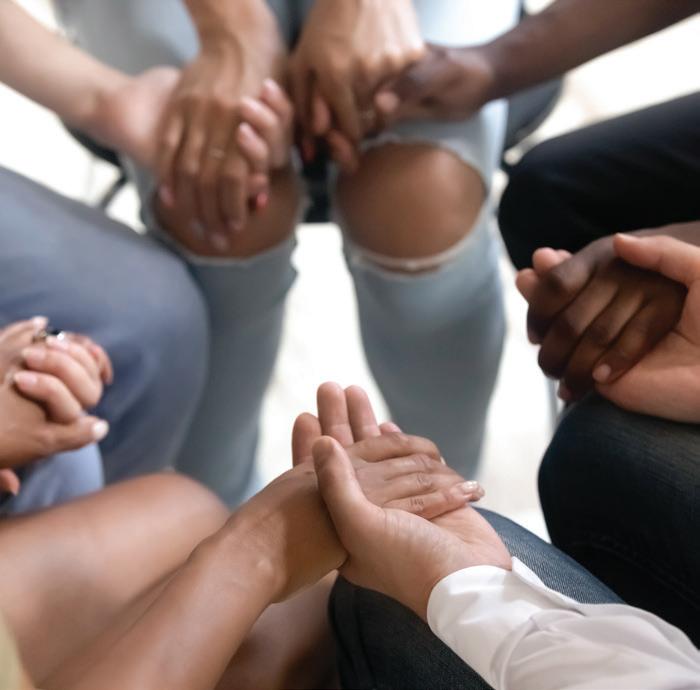
“The accompanying shame and stigma can result in a delay of up to 20 years from when somebody starts develop ing a problem with alcohol, drugs or gambling before they seek help. That is far too long, and as a consequence many Australians and their families suffer in silence. We have to ‘Rethink Addiction’.”
Australian of the Year Local Hero 2022 and ‘Sober in the Country’ charity founder Shanna Whan led the first of the keynote
speakers, recounting her experience of addiction and the culture of alcohol use in rural Australia, highlighting the impor tance of “mates supporting mates”and saying “It’s OK to say no” to booze.
The conference also heard about the impact of criminalisation in perpetuating stigma, and the reality of an expanded drug market, more dangerous drug supply, a growing prison population and increases in waitlists for treatment.
Experiences of alcohol and drug addic tion shared the stage with stories of gambling harm, from both pokies and the increasing presence of online gambling.

In Australia, one in four Australians will struggle with alcohol, other drugs or gambling in their lifetime. Australians also have the dubious distinction of being – on a per capita basis – the biggest gamblers in the world ($1,276 per person each year).
The Salvation Army has a long and recognised history of providing alcohol

and other drug services across the coun try, as well as gambling harm support. In 2021 alone, the Salvos supported more than 34,600 people with alcohol and other drug concerns, gambling addic tion and rehabilitation services.
Salvation Army Alcohol and Other Drug Services are dedicated to creating a plat form and pathways for people to build their lives in meaningful and purposeful ways. Our primary purpose is to prevent and reduce harm for both individuals and the wider community by supporting the reduction or cessation of the harmful use of alcohol and other drugs.
This approach recognises that no single treatment modality works for everyone, and a range of options and initiatives should be available where evidence shows that harm can be prevented or reduced.
The Salvation Army remains supportive of the National Drug Strategy 20172026, respective state and territory strategies and the non-government sector in working towards practical and tangible solutions to reduce the harm that alcohol, drugs and other addictions cause, and reclaiming Australia’s role as a global leader in harm reduction.
More information about the Rethink Addiction campaign is available at rethinkaddiction.org.au
Jeffrey Milne and Carmel Sefian are policy and advocacy advisors at The Salvation Army.
Scan here for more information on Salvation Army Alcohol and Other Drugs Services
The consumption of alcohol and illicit drugs can place a heavy burden on individuals, families and society, affecting health, relationships, jobs and education. The cost to the community from alcohol-related harm is estimated to exceed $14 billion annually. For illegal drugs it exceeds $8.2 billion.
Alcohol and other drug-related harm is both a driver for and result of other forms of disadvantage. Often a person experiencing alcohol or other drug harm is suffering multiple disadvantages. Alcohol and drug misuse can affect an individual’s brain, making it harder for them to change their behaviour even if they want to.
Around 43 per cent of Australians aged 14 and over have illicitly used a drug at some point in their life (including pharmaceuticals used for non-medical purposes), and 16.4 per cent have used one in the last 12 months.
It’s estimated that every year in Australia 4,816 people die from alcohol-related injuries, illness and accidents; 75,772 people are hospitalised due to alcohol consumption; 2,070 people die from drug-related causes; and more than one in five have been verbally or physically abused by a person under the influence of alcohol.
Gambling harm is any adverse consequence related to gambling activity that affects the health or wellbeing of an individual, family unit or community. The harm may include relationship difficulties, health problems, emotional or psychological distress, financial problems, issues with work or study, cultural problems and criminal activity.
Australians spend more per person on gambling than any other country in the world, and more money is spent on gambling than alcohol, tobacco and illegal drugs. For every person who gambles in a harmful way, another seven are directly impacted, including family and friends.
Approximately 9.9 million Australians gamble regularly. Forty-two per cent play the lottery or buy Scratchies (losing $2.5 billion annually), 11.9 per cent play poker machines (losing $8.7 billion annually), and 10.4 per cent participate in betting (losing $4.2 billion annually).
Australians lost $25 billion on gambling in 2018-19.
The COVID-19 pandemic increased online gambling activity in Australia, with 55.2 per cent who participate doing so online. Approximately one in three people signed up for a new online betting account during the 2020 lockdowns.
People who gambled four or more times per week rose from three per cent to 32 per cent between June and July 2020. Men aged 18-34 lost $1,075 per month, up from $687 over the same period in the previous year.
It’s estimated that every year in Australia:
• 4,816 people die from alcohol-related injuries, illness and accidents
• 75,772 people are hospitalised due to alcohol consumption
• 2,070 people die from drug-related deaths
• More people die from drug overdoses than die on the roads
More than one in five Australians (21 per cent) aged 14 and over have been verbally or physically abused or put in fear by another person who was under the influence of alcohol.
The proportion of Aboriginal and Torres Strait Islander people living in Australia who consume alcohol at levels that exceed lifetime risk guidelines was 18.4 per cent in 2018–19. Over the same period, 23 per cent of Indigenous Australians had used an illicit drug in the last 12 months.
Australians lost $25 billion on gambling in 2018–19. This means that $1,277 was lost on gambling per person in that year.
Approximately 9.9 million Australians gamble regularly:
• 42.6 per cent play the lottery or scratchies (losing $2.5 billion annually)
• 11.9 per cent play poker machines (losing $8.7 billion annually)
• 10.4 per cent participate in betting (losing $4.2 billion annually)
• 55.2 per cent who participate in betting do so online
The COVID-19 pandemic increased online gambling activity in Australia:
• Approximately 1 in 3 people signed up for a new online betting account during 2020 lockdowns
• People who gambled 4 or more times per week rose from 3 per cent to 32 per cent between June and July 2020
• Men aged 18–34 lost $1,075 per month, up from $687 over the same period
Canines for Christ is partnering with The Salvation Army and using the power of ‘puppy love’ to bring emotional relief to survivors of Hurricane Ian.

Hurricane Ian was a large and destruc tive Category 4 hurricane that caused widespread damage across western Cuba and south-east US in late September and early October.
Florida was particularly hard hit, with 129 deaths and damage estimated at more than US$67 billion.
A golden labrador retriever named Dunkin toured around homes near Fort Myers Beach in Florida where hurricane survivors were cleaning out the first floor of condos that were inundated by massive storm surges.
Tina Reeder, Dunkin’s handler and an ordained chaplain with Canines for
Dunkin the golden labrador retriever gets a pat from local residents who are recovering from Hurricane Ian that struck Fort Myers Beach in Florida.
Christ, says the golden lab went through extensive training to be certified as a crisis response therapy dog through the American Kennel Club.
“The mission of Canines for Christ is to share the love of Jesus Christ in times of despair through the dog. People stop and pat the dog, and it gives us an opportu nity to talk and pray with them,” Tina said.
The impact of Dunkin’s presence was immediately apparent in his interactions with around 40 hurricane survivors at a condo complex in Fort Myers.
One after another, those working on salvaging belongings in flooded-out homes flocked to Dunkin, asking to pat him and letting him give them some puppy-love during their time of need.
There’s no hiding from the ups and downs of life
Words Faye MichelsonTen, nine, eight … you know how the game goes!
The person who’s ‘it’ turns their back on their playmates, shuts their eyes and counts backwards.
Seven, six, five … everyone else scat ters and frantically looks for somewhere to hide.
Four, three, two … the hiders squeeze/ flatten/wedge themselves into their ‘safe’ places as quickly as they can.
One … the person who is ‘it’ turns around, surveys the scene and yells, “Ready or not, here I come!”
Who knew that the simple game of hideand-seek we played as kids was a little insight into the biggest game of all – life?
There are times when we’re like the hiders. In the game, we have to be resourceful, forced to make quick deci sions (after all there’s only 10 seconds or so to hide). We climb a little higher, go a little further, squeeze into a tighter spot in an effort to be ‘safe’.
There’s suspense, anticipation and –depending on how seriously you play the game – dread as you wait to be discovered.
In life, too, there are times when we feel like we’re running away to hide from situations, expectations or people. We do our best to make ourselves invisible but, like the game, in the end we know we’ll probably be found.
Then sometimes we are the ‘it’ of the game, the one who has the task of find ing the hiders.
Looking for people who don’t want to be found can be frustrating. In life, we can experience similar feelings of exasperation and disappointment when we spend too much time searching for those elusive things that will make us ‘winners’. And, like being ‘it’, looking out for number one is a lonely pursuit.
That game of hide-and-seek finishes when people are found and hiding places are exposed. A different person is chosen to be ‘it’. Then it all starts again.
Ready or not, life happens, and keeps on happening. We might not feel like we’re ready for it, but one thing we can be sure of – God is.
When all our plans amount to nothing, when we no longer feel safe or protected, we have this promise from the Bible: “God is good, a hiding place in tough times. He recognises and welcomes anyone looking for help, no matter how desperate the trouble” (Nahum chapter 1, verses 7-10 The Message translation).
Scan here for more on finding meaning.
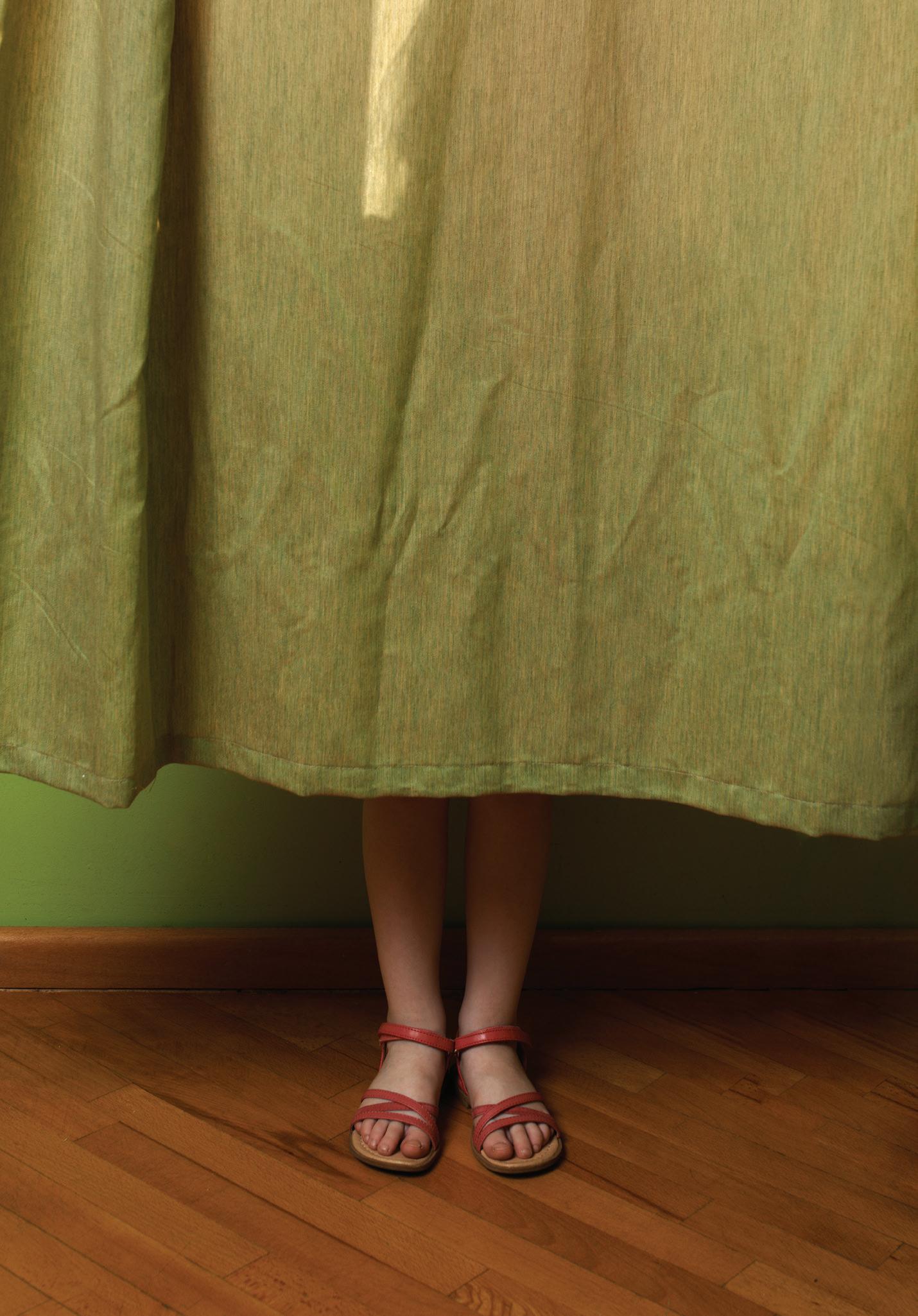
As the new Schools Engagement Representative for The Salvation Army in Perth, Liam Swainson is known for his extroverted and goofy presence. He engages kids with the realities of homelessness and poverty through presentations and work experience –and when students want to help, he is their connection to the local Salvos corps (church).
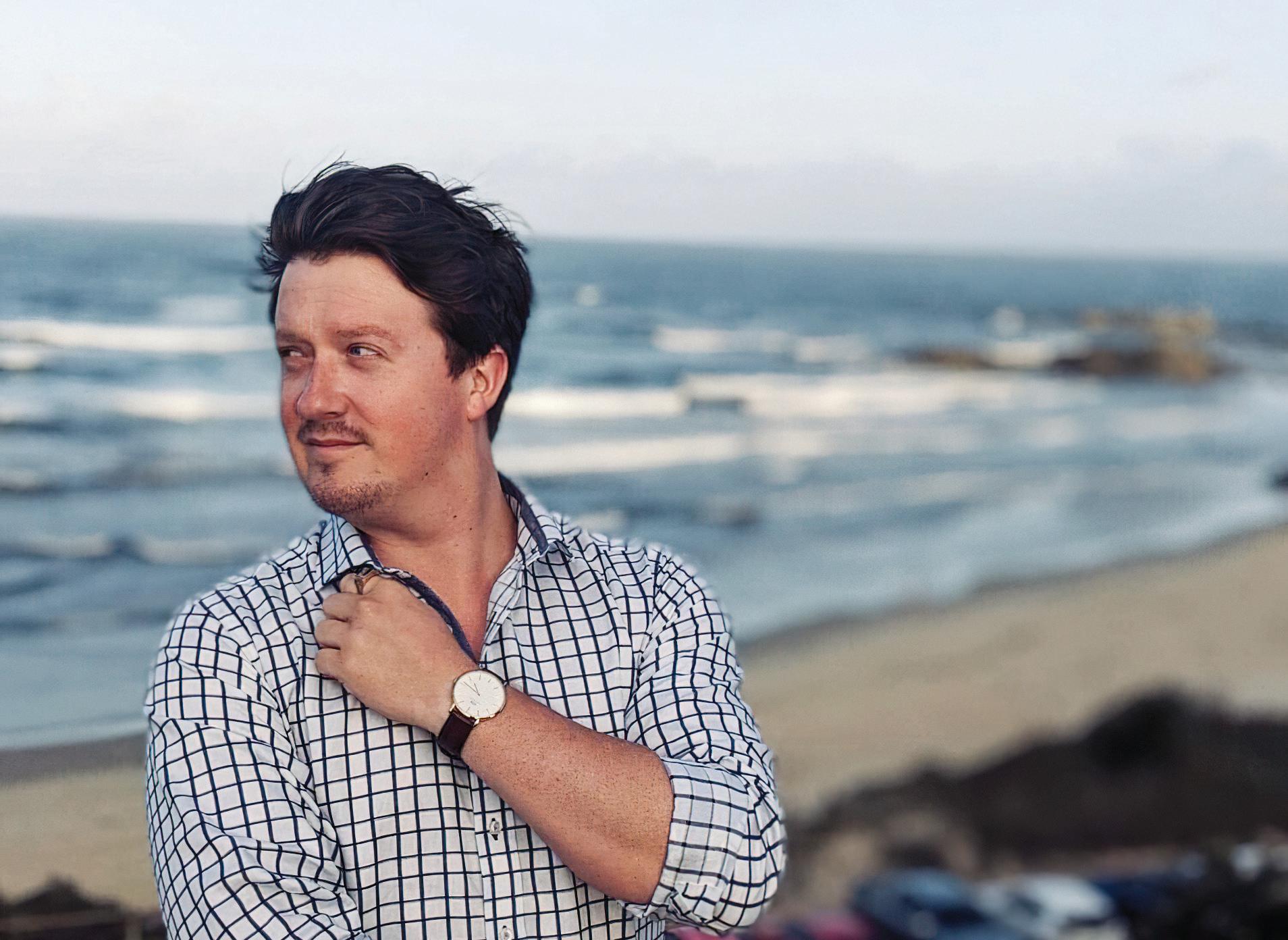
In many ways, Liam is like the new kid at school – making new connections with the wider Salvation Army and his community daily.
“I first encountered the Salvos back when I was still in primary school. My older sister, Laura, attended youth group on two evenings out of the week and would constantly talk about all the fun she had. As soon as I started attending high school, I started attending youth group too,” he recalls.
“I was shocked when on the first night, the topic of Jesus came up, and we spent some time doing a basic Bible study session. I remember thinking to myself, ‘I didn’t sign up for this.’ I still stuck around, though, and it wasn’t until
an Easter camp run by the Salvos that I gave my heart to Christ.”
For Liam, the decision to truly commit to Jesus was a roundabout journey that inevitably led him right back to The Salvation Army. But not without a few bumps in the road.
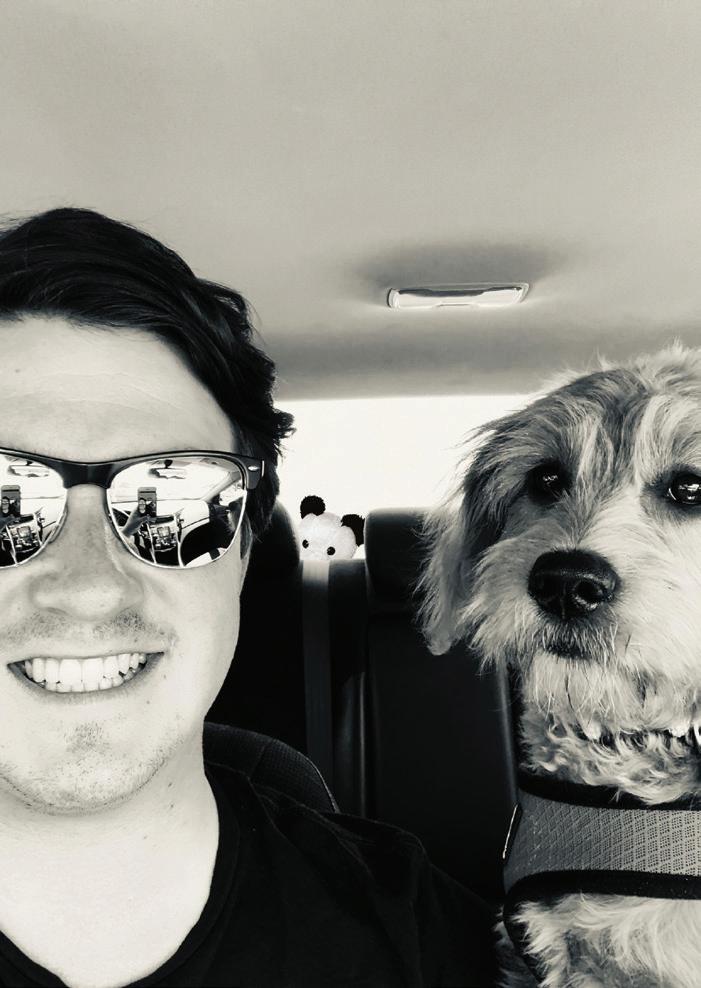
“I had to [learn how to live from] a brand-new standpoint,” he says. “This resulted in a warped perspective of simply trying to be the stereotypical Christian – doing good deeds to my fellow man. I found myself constantly burning myself out by trying to do the ‘right thing’ by God and being swept up in normal teenage life.”
from the local Salvation Army, he expe rienced a grace that made Jesus more real to him than ever before.
Leaving the church, Liam still believed in Jesus – but he was exhausted by “trying to be right”. The turning point came when he realised something was missing from his life. Reconnecting with friends
“I remember being surprised at the enthusiasm and acceptance I was welcomed back with – despite me still being a bit of a goose and not knowing myself,” he says. “All of this led to my faith being shaped more around getting to know a relational God.”
Coincidentally, one of those friends was School Engagement Manager Peter vernon, his new boss. Their new partnership is crucial to the success of the Salvos Schools program in Western Australia.
“My role with the Salvos really helps me to live out my faith by getting to drive forward the Salvo mission, which aligns with my values – bringing hope to those who have none,” Liam says. “I’ve really found a lot of enjoyment in being able to highlight to students that no deed is too small and that every little bit of good they do can and does make a massive difference.”
Scan here for more on finding meaning.
I found myself constantly burning myself out by trying to do the ‘right thing’.
Doctor, doctor! I think I have a bladder infection! I see urine trouble!
Why couldn’t the police officers catch the toilet thief? They had nothing to go on!
1 cup cashews (other nut varieties are also suitable), 1½ cups prunes, sea salt (optional), ½ cup desiccated coconut.
• Grind nuts in a food processor until fine.
• Add prunes and pulse until dough forms into a ball. If desired, add sea salt to taste and pulse again.
• Roll dough into balls (makes about 18) with damp hands (the dough will be sticky).
• Roll balls in desiccated coconut.
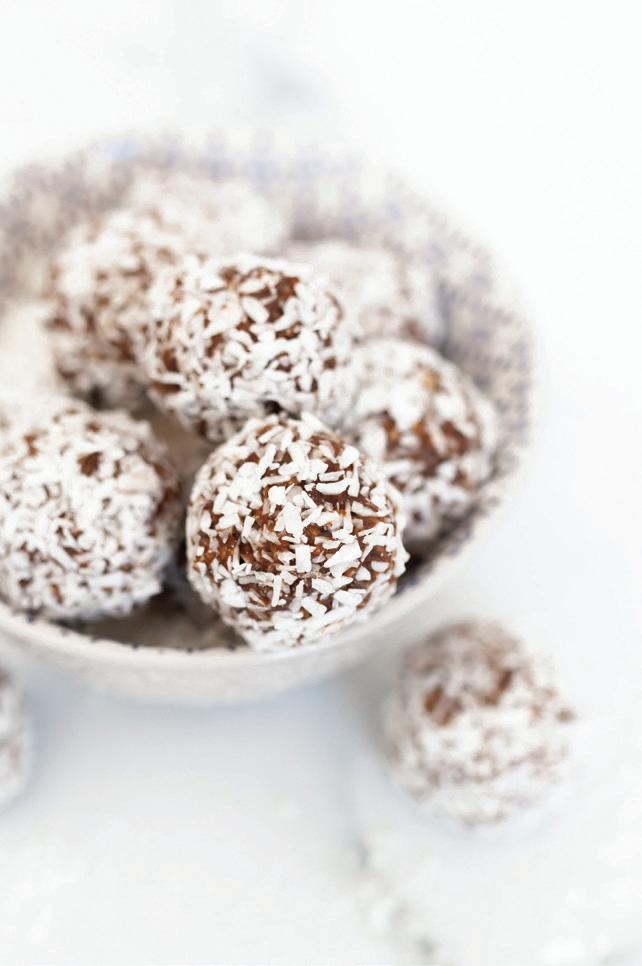
• Store in a covered container in the refrigerator. They will keep for a couple of weeks.
There are two reasons you shouldn’t drink from the toilet. Number one and number two!
Why can’t you hear a Pterodactyl using the bathroom? Because the ‘P’ is silent!
I’m so sick of the stereotype that all women wear superhero capes to go to the toilet.
Sudoku Puzzle #1
Fill in the grid so that every row, every column and every 3x3 box contains the digits 1 to 9.
2 9
1. Who invented the modern toilet in the 16th century?
2. The term WC, used as an alternative name for a toilet, stands for what?
3. Over a lifetime, how long does an average person spend on the toilet?

4. How many sheets of toilet paper does the average person use daily?

5. What was the most common item used in colonial America before toilet paper became an everyday item?
World Toilet Day is held every year on 19 November. It has been an annual United Nations Observance since 2013.
Inadequate sanitation systems spread human waste into rivers, lakes and soil, contaminating water sources under our feet.




